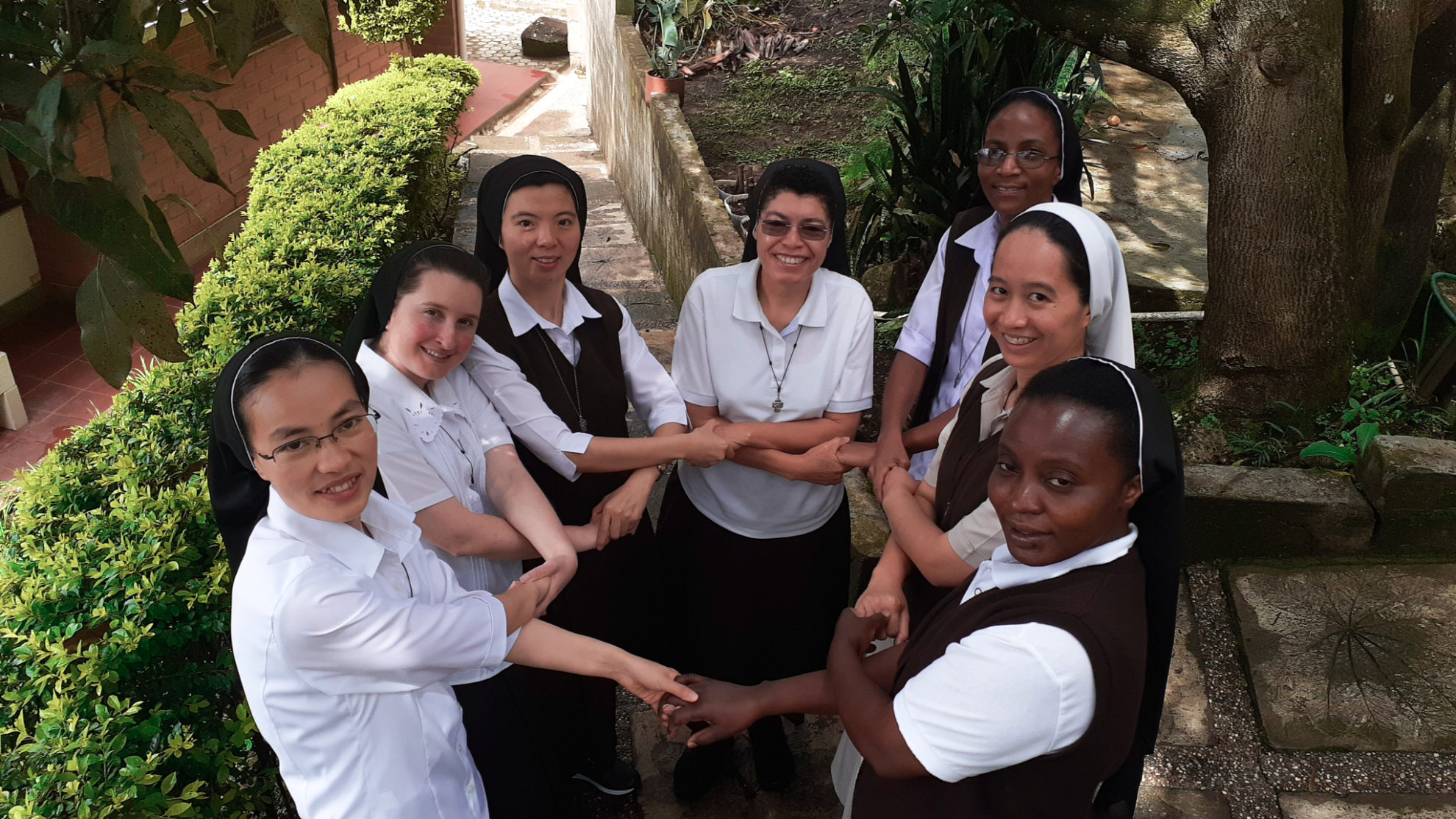
- PHONE: +63 34.4582810
- E-mail: communicationsteam@capuchinsistersasia.org

“With a total and free surrender, we follow Jesus Christ through the vows of obedience, poverty and chastity” (cf. Const. 2). “Our way of life and supreme rule is to observe the Holy Gospel, living in fraternal community, minority, and penance, in communion with the Church and in fidelity to our charism expressed in this Constitution.” (Const. 3).
For the Franciscan, for us, life itself becomes a mission, accompanied by concrete works in service to others, with a certain style. Our Congregation draws on the spirituality of Francis of Assisi, transmitted by Luis Amigó, in love and faithful to the end of his Franciscan-Capuchin vocation, with a charism that underlines in a special way the merciful dimension of love.
Francis of Assisi had no other wealth than the Christ of the Gospel and our Father Founder transmitted that spirit to us in his life and writings, proposing this discipleship as a basic and essential condition. For us this Christ presents Himself with special characteristics: A Christ inseparable from the Father; incarnate; poor, humble, crucified and risen; a Christ, Good Shepherd, and Redeemer.

The following of Christ is done in fraternity as a place of encounter, where we sisters accompany each other and share the joy of the call. A fraternity that is a gift and a task, celebrates Jesus Christ, is lived in humble service and mutual obedience, and implies equality among all the sisters.

Franciscan minority involves evangelical littleness and an attitude of service. Being a minor is equal to being a servant, little, poor, simple, humble, subject to others, at their service, available, without desire for dominance. Minority as a sum of evangelical attitudes has for us its concrete expressions in: obedience, poverty and humility; the preferential option for the most impoverished and needy; trust in Providence; the commitment to justice, peace, the defense of life, and the care of creation.

The spirit of penance and an attitude of continuous conversion are essential components of our charism. Penance is above all a change of mentality. And being penitent like Francis, Clare and Luis Amigó implies:that God becomes all good, supreme good, only good … (AlD 3), thus redimensioning all the values and interests that we can possess and lead a prayerful lifestyle, austere, fraternal and of unconditional service to the brothers and sisters, knowing that we are creatures in the hands of the Creator.
Saint Francis felt the immediacy of the presence of Jesus in His Church in the very concrete person of the “Pope of the Roman Church” whom he called with his own name (cf. 2R 2), of the Bishops, theologians and even the poorest priest (cf. Test 6). Father Luis Amigó founded our Congregation in close communion with the Church, he lived as an obedient son to her, instilled love, submission, respect, collaboration, the deepening of his doctrine, the acceptance of his initiatives and suggestions, inviting us to bear witness to communion as active members of it.
Our apostolic mission is the realization of our “way of life” expressed in the Rule and the Constitutions.
As an authentic evangelical community, we are impelled by the Holy Spirit to collaborate in the saving mission of the Church, who sends us to be the presence of the Lord and bearers of peace to the world (Const. 57). We evangelize “with the witness of our own life, the exercise of charity and the proclamation of the Word to those who need us, preferably to the poorest and the neediest” (Const. 4).
Our entire life and mission must be characterized by the attitude of the Good Shepherd and the spirit of the Holy Family.
Jesus Christ is the only Shepherd who knows his sheep, loves them, risks everything for them and gives his life according to the command received from the Father. This attitude was embodied in his life by our Father Founder, who distinguished himself by his sensitivity and dedication to the excluded. The Good Shepherd is the figure that he chose as a guide and expression of what he wanted to live, his episcopal motto being: “I give my life for my sheep.” We live it when we announce and build peace, when we seek the hearts of women and men through dialogue, respect, listening, and understanding; when we go out to meet the rejected.
Our Father Founder placed our Congregation under the protection of the Holy Family and wanted it to be an inspiration and model for us: “… especially in the spirit of prayer, family life, and openness to the will of God” (Const. 6) . Our Congregation, under the gaze of the Holy Family, makes us a peculiar family of sisters, a peculiar Franciscan fraternity.
But also, “the Family of Nazareth urges us to commit in the apostolic work that we carry out to create a family atmosphere and pay special attention to the Christian promotion of homes” (cf. Const. 61). We are called to live with welcoming attitude, simplicity, sensitivity to suffering, concern and special dedication in accompanying families, defending life, the dignity of women and children.

The image of the Holy Family that dominates over the church of the same name, in our Mother House of Massamagrell-Valencia-Spain, is the one that the Founder himself chose, even before the construction of the temple, because he saw his two congregations reflected in it. His desire is to link the Family of Nazareth with our most endearing apostolic task, which is to accompany helpless children and young people, at risk, “moved with compassion”, a task that since the beginning of our Congregation we have carried out together to the tomb of Father Luis and sheltered under the gaze of the Holy Family.